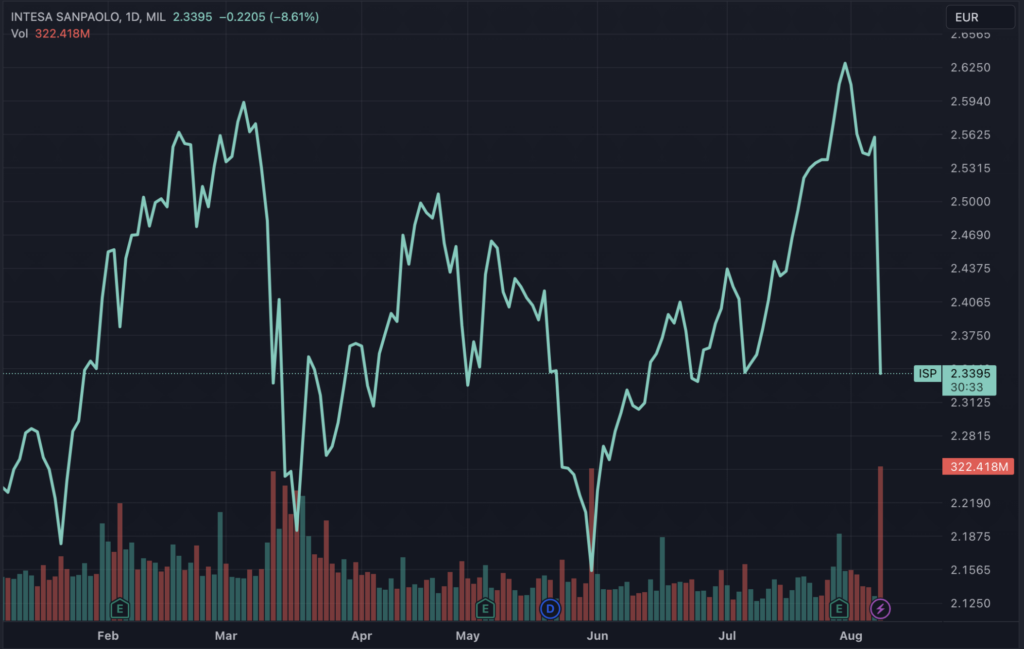In an unexpected move that caused banking shares to plummet throughout Europe, Italy has sanctioned a one-time 40% tax on the increased profits banks have earned from rising interest rates. This comes after criticism that banks have increased loan costs without providing corresponding rewards on deposits, and mirrors actions already taken in Spain and Hungary where windfall taxes have been imposed on banks.
Italian Prime Minister Giorgia Meloni had previously entertained the notion of such a tax but seemed to have moved away from it. However, when impressive first-half results from banks were released, the issue was back in the limelight, compelling the government to act decisively. This decision reportedly surprised even some ministers during a recent cabinet meeting.
Italy intentionally causing a banking crisis? 🤨
— Financelot (@FinanceLancelot) August 8, 2023
"Italy surprises markets with the announcement of a 40% 'windfall' tax on banks" pic.twitter.com/HGycE4y8ud
“One has only to look at banks’ first-half profits … to realise that we are not talking about a few millions, but … of billions,” said Deputy Prime Minister Matteo Salvini, as cited by Reuters. He contrasted this with the lack of increase in what current account holders receive despite the costs of borrowing money doubling for households and businesses. The government aims to use the tax proceeds to assist those grappling with living expenses, including mortgage payers.
The ramifications of this decision were felt immediately in the stock market: Italy’s primary banking index dipped by 7.4% by mid-morning on the following Tuesday, while major banks like Intesa Sanpaolo and UniCredit saw stock values drop by 8% and 6.5%, respectively. The European index was also down by 2.4% while a downgrade of some US banks by Moody’s contributed to the declining shares.

Analysts from Citi believe that this tax could eliminate almost a fifth of the Italian banks’ net income for 2023, while the government’s revenue is expected to hover around 2 to 3 billion euros. Italy’s decision will mean the tax is levied only in 2023, requiring banks to pay the amounts by mid-2024. This tax targets the net interest margin, which is the profit banks gain from the difference between lending and deposit rates.
Information for this briefing was found via Reuters and the sources mentioned. The author has no securities or affiliations related to this organization. Not a recommendation to buy or sell. Always do additional research and consult a professional before purchasing a security. The author holds no licenses.









